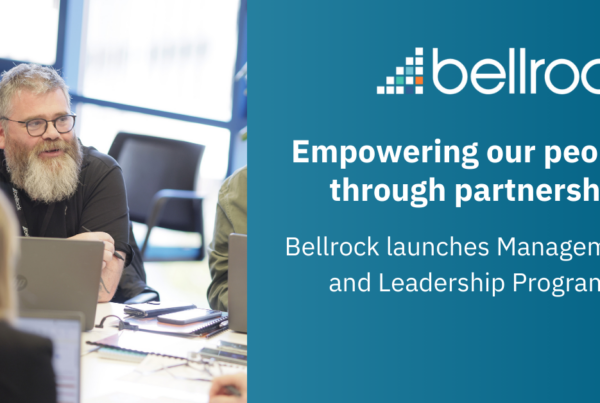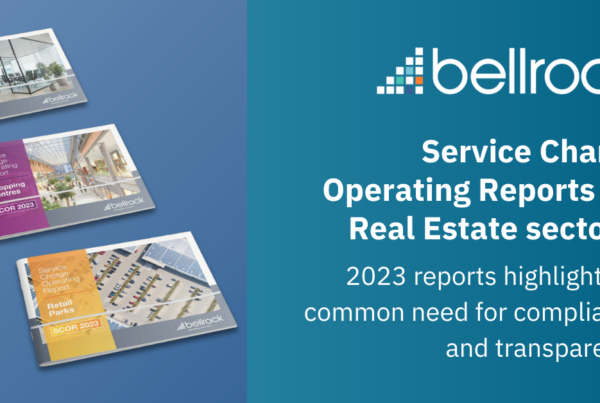Bellrock’s Mission to Destigmatise Mental Health in the Workplace
Mental Health Awareness
These past few years, we have seen a surge in mental health awareness with dedicated events and fundraisers being organised around the world. Today we know one in four adults and one in ten children experience mental illness, and many more of us know and care for people who do. Mental health is being put on an equal footing to physical health and is more talked about than ever.
Still, the number of people struggling with mental health issues is rising daily. There is no doubt that a year of pandemic, lockdowns and coronavirus restrictions have put a strain on many people’s mental health. Many of us were separated from family and friends during various lockdowns, lost their job, or in the worst case lost a loved one to COVID. The pandemic has tested our resilience, especially to the everyday pressures we face when the world appeared somewhat upside down.
Mental Health in the workplace
Did you know that mental health issues are the number one cause of sickness absences in the UK? Even though mental health awareness is growing by the day, discussing mental health issues in the workplace still seems a bit of a taboo subject. CV-Library found that 95% of employees suffering from mental health issues actually give a different reason when they call in sick. Another distressing statistic is that only 13% of employees would be comfortable discussing a mental health issue at work. Even worse, another CV-Library survey revealed that 64% of workers feared being judged by their direct managers if discussing their mental health.
The above statistics clearly imply we can do better as a community. A workplace should become a safe haven to discuss mental health with other colleagues. Employers should consider providing proactive relief to employees to support their mental health needs. Human resource managers should be able to spot the signs of a colleague who is struggling and figure out the best way to help them. Employee burnouts can be prevented if we provide the right support as a company and together, we could put a stop to a mental health crisis across the UK.
A change in workplace management
In the facilities management industry, health and safety professionals are now urged to integrate more policies and protocols to mitigate potential mental health risks rather than just physical health risks. There is a need for information about mental health in the workplace so working people can openly discuss issues around stress and anxiety. HSE workers now require adequate training and guidance in promoting favourable mental health policies that are non-judgmental and supportive.
It’s crucial that employers also take a broad view of staff well-being, rather than just focus on narrow legal obligations. There is nearly always something an employer can do to support individuals, whether it’s through offering or advising on counselling services available or being flexible about working hours. In the workplace, line managers play an important role in positively or negatively affecting the mental health of their employees:
- They can prevent, or conversely cause stress by the way they behave to staff
- Their influence may mean their staff can be protected from, or exposed to, stressful work conditions
- They work closely with their team so are well-positioned to identify stress in others at an early stage
- They ‘hold the key’ to the success of work planning and in implementing change effectively
- They can also use tools like stress risk assessments to identify ways in which the pressure their staff work under can be managed properly
But it’s not all about managers. We, as individuals, have a responsibility for our own well-being, and as such for improving our resilience to the everyday pressure of life. We all have a role to play in making sense of our own experiences and environment. The way we each lead our lives directly affects the way we cope with the things that life throws at us. Increased resilience isn’t just about what others can do for us; it’s how we can help ourselves.
Bellrock’s approach
Our Safety & Sustainability team supports around 1500 colleagues and many more working in our supply chain. Their work involves providing a safe and healthy environment in the workplace, whatever the industry. This includes detecting hard-edged safety-related hazards, but a large amount of time is also used to focus on health issues. From our own experience, mental health-related issues are a large cause of ill-health absence amongst our employees. For this reason, we’ve now implemented Mental Health First Aiders. These professionals can offer face-to-face support to colleagues all provided within the workplace.
Besides Mental Health First Aiders, we have a range of online resources available at Bellrock, specifically designed to reach across the organisation and provide a source of advice and guidance to help improve well-being and resilience to life events. Whether through diet, exercise, relaxation, time management, or even spirituality, there is wealth of information and resources to help people help themselves. We strongly believe more companies should engage in supporting mental health initiatives within their organisations to destigmatise mental health.






